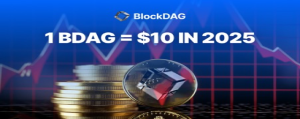Swiss National Bank may gain monopoly on how physical and electronic money is created
Hard to imagine as it may be, almost a year has passed since the Swiss National Bank pulled the rug from under the feet of many electronic trading firms, prime brokerages and interbank FX desks when it suddenly removed the 1.20 peg on the EURCHF pair. As 2015 begins to give way to 2016, the […]

Hard to imagine as it may be, almost a year has passed since the Swiss National Bank pulled the rug from under the feet of many electronic trading firms, prime brokerages and interbank FX desks when it suddenly removed the 1.20 peg on the EURCHF pair.
As 2015 begins to give way to 2016, the Swiss National Bank may reinforce its position as the mainstay in ensuring Switzerland’s financial stability and risk management regardless of the consequences to businesses and national economies in other nations globally.
Perhaps it is understandable that Switzerland, a nation which sells security and has built its venerable reputation and vault-like standing as a place where the entire world can be sure that their money and assets will be completely safe regardless of any potential factors ranging from war to economic meltdowns in any nation in the world, that the country does everything it can to uphold its unique position.
Poignantly, the complete independence of Switzerland from other nations, including those which surround it, is a key point as Switzerland’s lawmakers are free to implement very quickly any policy that the nation’s population either lobbies for or approves, without being answerable to any bloc such as the bureaucratic and commercially and financially illiterate European Union.
Yet under Switzerland’s absolute and direct democracy, should a petition go up in front of the government, the government is duty bound to hold a referendum without any delay or opposition.
However on Thursday this week, the Swiss government confirmed that it is holding a referendum which will hear the perspective of 110,000 people that have signed a petition which was created to lobby the Swiss government into invoking a law that the Swiss Central Bank should be given sole power to create money, fiat or otherwise, in the financial system.
On the points of detail, this particular campaign is being led by the Swiss Sovereign Money movement which is, in Swiss German, known as the Vollgeld (literally full money) initiative.
Leaders of the campaign group issued a statement saying that if this is successfully implemented
“Banks won’t be able to create money for themselves any more, they’ll only be able to lend money that they have from savers or other banks.”
If this becomes approved, the sovereign money bill will give the Swiss National Bank a complete monopoly over the creation of all money, whether electronic currency, or physical bank notes.
Defying the unified constitution of its neighbors, Switzerland, very much a proponent of electronic currency, is an interesting nation with regard to the makeup of the currency which is circulating, in the respect that 90% of money in circulation in Switzerland is effectively electronic cash created by private banks rather than the central bank.
As an important matter to consider, this is NOT to be confused with virtual currencies such as Bitcoin – it is actual sovereign currency held in Swiss bank accounts but is created by private banks and written down on bank ledgers, though no actual notes exist.
Yet the international nature of the customers of private banks in Switzerland is partly the reason for this.
Switzerland’s Sovereign Money campaign objects to this and has stated
“Due to the emergence of electronic payment transactions, banks have regained the opportunity to create their own money. The decision taken by the people in 1891 has fallen into oblivion.”
This refers to the Swiss National Bank’s ruling way back in 1891 to retain exclusive power to mint coins and issue Swiss bank notes.
Although the Swiss National Bank is very unlike other national banks in that a large percentage of it is owned by private shareholders, referenda on monetary policy in Switzerland is relatively common.
110,000 people sign petition proposing that the SNB gets sole power for money creation in the financial system.
in 2014, Swiss citizens voted by more than 78% to reject a law that would have permitted the central bank to increase is gold reserves from 7% to 20%.
As perhaps is to be expected, economists are generally in favor of the idea of the restriction on creation of money, largely because they view it as a means of stabilizing the economy and also a good tool for preventing unsustaibable credit growth.
From the editor: To those who found this so interesting that they did not notice the vertical message hidden in the bold first letters of each paragraph of this article, I will re-iterate: Happy Holidays! Wishing all of our readers and highly valued supporters a very well deserved and enjoyable festive season. Here’s to a great new year ahead!









